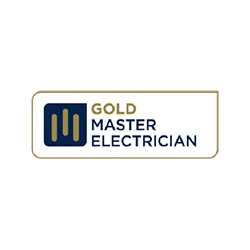5 September 2017
12 energy saving tips for your home this winter
With winter comes higher power bills. Home heating, clothes drying, water heating and extra lighting all add up during the shorter days through the colder months of the year. We could all happily sit back blame the rising electricity prices for the extra digits on our bills but in reality, there’s a load of changes you can make around your home to reduce your power costs this winter.
Save on appliance use
- Wash in cold water on the short cycle. Yes, you can do this. Yes, even for those stinky work clothes. Many washing detergents cater for a cold water wash without any loss in end product cleanliness. Washing in hot water on the long cycle for ‘dirty’ clothes is a double whammy on the power use.
- Turn the heater down, in fact, stop using the heater and turn the reverse cycle air conditioner on. Using the air conditioner to heat your home is one of the most economical ways to stay warm this winter. For more information on this topic – Heating with reverse cycle air conditioning
- For the most energy-efficient use set the air con to between 18 to 20 degrees Celsius. Close off rooms you’re not using, draw curtains and block drafty windows and doors to make sure the warmth you have doesn’t escape.
- Get your hot water heater checked to ensure it is only heating the water to 60 C (for storage hot water systems, 50C for instant hot water), anything above that is a waste of power in a general home situation. To prevent scalding the water should be set to come from the tap at 50C. Consult your plumber to test this and install a tempering valve if you need one.
- In south-east Queensland, we have cool, dry winters which don’t seem so amazing when the garden starts to dry up but it does allow us to dry clothes on the washing line for most of the season. It may take a bit longer than it does in summer but for the convenience of running the dryer, you could add over $180 to your power bill for the winter quarter.
- Turn the fridge down a bit, it doesn’t need to be as cold in winter and anything below 3 to 5C is a waste of energy. Defrost your freezer as it works more efficiently without the build-up of ice.
- Turn off the spare fridge or freezer when you’re not using it. These can cost a bomb to run especially if it is an older style fridge.
Saving on lighting
Shorter days mean we use more artificial lighting in our homes. Before you reach for the candles to save the lights we have a few tips on smart use your home lighting to reduce costs.
- Switch to energy-efficient light bulbs like CFC and LED. They cost more to purchase but the increased price is offset by low energy use (up to 1/5 of a traditional incandescent bulb and half the equivalent halogen bulb) and increased longevity.
- Switch it off. Your mum was right, you should turn the lights out when you leave a room. (She was quite likely not made of money, nor did she have a money tree out the back. Mum’s were right about so much stuff.)
- Consider if you need all the lights on in an area. Modern homes often have various lights in one space, such as an open plan living room. Take a minute to assess if you need all the lights on in the kitchen and dining area if you’re just watching TV in the lounge.
Save on pool costs
- Reduce the time the pool filter is running during the cooler months when it’s not being used. You could save hundreds just by halving the hours the pump runs each day. Consult your swimming pool professional for the correct setting for your pool.
- If not already connected switch your pool to Economy Tariff 33. This tariff could save your home up to 27% on your pool running costs. Find out about switching to pool tariff 33.
Home Energy Audit
A simple way to find out where you could be saving power around your home is to undertake a professional Home Energy Audit. During the audit, an experienced electrician will measure how much energy each appliance is using, identify which appliances are wasting power due to age or maintenance issues and what you can do to make the move to a more energy-efficient home.
Related Energy Efficiency posts
Suggested articles
No articles found

